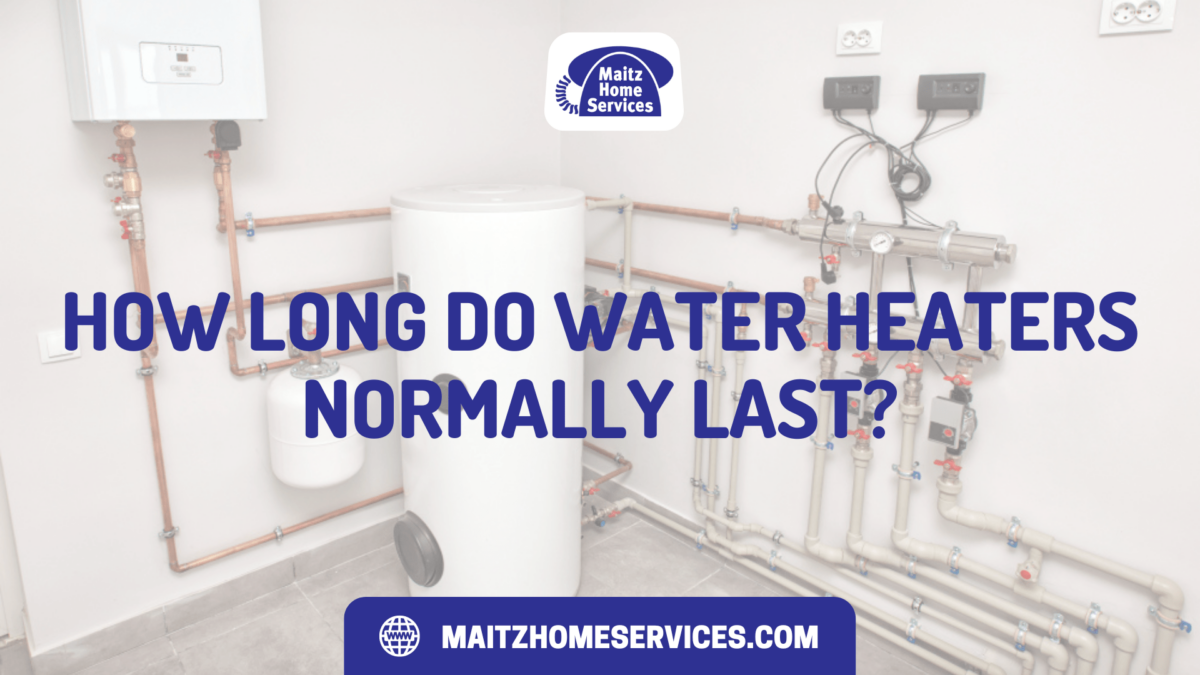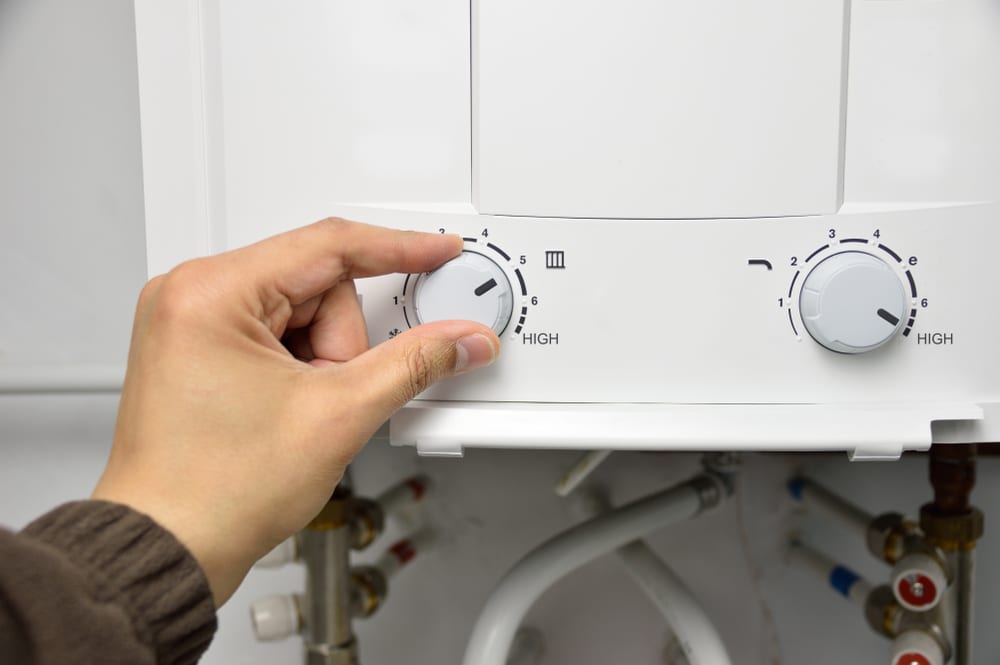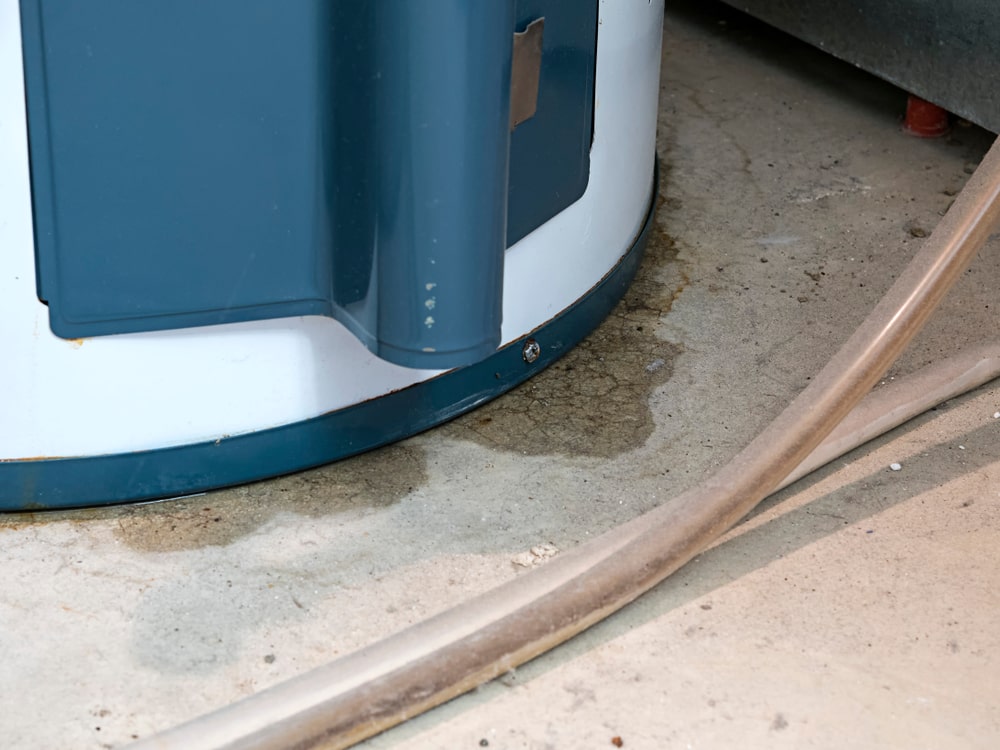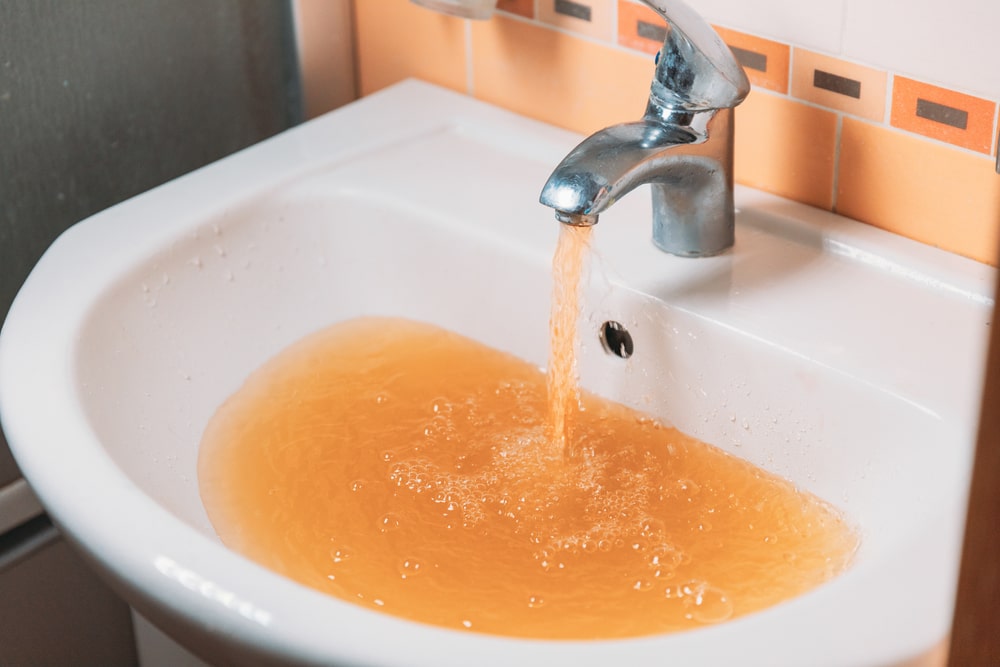
Water heaters are essential appliances in most households. While everyone wants their water heater to last for a long time, it is inevitable that they will eventually fail. However, you can prevent unexpected failures by better understanding water heaters. This includes knowing how long they typically last and being able to identify signs that they are starting to deteriorate. This article will discuss these factors and more to help you make informed decisions about your water heater.
How Long Does a Water Heater Last?
Every water heater is different. Therefore, every water heater will last for a different period of time. Despite this, you can generally estimate how long one will last based on the average length of time similar heaters last.
A gas water heater typically has a lifespan of 8-12 years, which is slightly shorter than other types of water heaters. On the other hand, electric water heaters tend to last a bit longer, usually anywhere from 10-15 years.
To increase the longevity of your water heater, it’s essential to maintain it properly and address any issues promptly. While regular maintenance can help reduce the number of problems it faces, it’s important to keep in mind that every system has its limits and will eventually need to be replaced.
How Long Does a Tankless Water Heater Last?

Tankless water heaters have the edge over other water heaters because they lack a tank. By removing this part, they reduce the wear and tear on the system as a whole. Because of this, tankless water heaters can last 20 years or even longer.
Signs You Need to Replace Your Water Heater
As your water heater reaches the end of its life, there are some signs that will indicate it needs to be replaced soon. Be on the lookout for these, as they will allow you to make the switch before your heater gives up entirely.
1. Water Heater Age
The age of your water heater is a good indicator that it is near the end of its life. Once it ages, you will know it only has a few years left.
Pay closer attention to your water heater as it nears ten years old. During this time and the time after it, be more vigilant regarding any issues, large and small, that the water heater is having.
If you don’t know how old your water heater is, you may think this won’t help you. However, there is a way to find the age of your system. Look for a sticker on the water heater that lists the serial number, as it will also usually list the water heater’s age. If it doesn’t list the age, go to the water heater manufacturer’s website and use the serial number to find out more.
2. Not Getting Enough Hot Water
As a water heater gets older, it tends to experience more problems due to small failures before a complete failure. Its ability to heat up and hold onto heat decreases over time. A noticeable indication of this is running out of hot water faster than before. In its prime, the water heater produced so much hot water that running out was not a concern. However, with age, it may become challenging to finish a shower without the water turning cold.
3. Water Heater Leaks

Water heaters are made from pieces of metal that are constantly dealing with hot and cold temperatures. These fluctuations in heat cause the metal to expand and contract. This doesn’t have much of an impact in the short term, as most metals are relatively durable. However, over time, it warps the metal.
This creates a few problems. The pieces of the water heater that previously held a tight seal are now less tight than before. This allows water to get through.
The difference in the metal due to expansions and contractions is not noticeable to the human eye. However, the water that penetrates through can be noticed. The sign of this is leaks from the water heater, which can be observed as a pool of water underneath it or occasional dripping. These are clear indications that the water heater is aging.
4. Odd Noises
Water is typically filtered before it reaches your water heater. This removes minerals, dirt, and other sediments from the water before they get to the water heater. However, the filtration process is not 100% effective. Some sediments are bound to reach the water heater itself.
Once there, these sediments start to build up over time. This takes a while to happen, as the amount of sediments in the water is extremely low. However, sediment deposits can be significant after years of use.
These deposits will eventually harden and become problematic. They can block critical passageways and force the water heater to expend more energy to heat up the tank. Both situations can lead to the water inside bubbling and gurgling in odd ways. These noises are your clue that something isn’t right.
5. Utility Bills Are Outrageous
Most of the problems that appear as water heaters age reduce their efficiency. The water heaters have to work harder to produce the same results. This could be because of sediments building up inside, leaks, or plenty of other issues. However, they all produce the same inefficient result.
In some cases, these issues are too small to notice individually. However, they add up to something noticeable on your utility bills. The inefficiency each of these issues creates causes your utility bills to rise in cost.
Just make sure to consciously think about your bills as they come in. If you feel like you are using the same amount of hot water that you always do yet notice your bills are higher, there may be something wrong.
6. Rusty Water

Water heaters have a lot of metal parts. For the majority of a water heater’s life, these parts should stay in good condition. However, many types of metals will start to rust eventually.
Once this happens, you will notice it in the water coming from your system. The rust will work its way into your water and appear as a light to dark orange color, depending on the severity of the problem. If this happens, you want to fix it immediately, as the rusty water is unsuitable for your health.
7. Visible Damage
If your water heater is experiencing serious issues, there are visible signs to look out for. Rust on the metal or cracks anywhere on the system are two obvious indicators. However, be wary of any other irregularities. Any visible damage is a bad sign, indicating that your water heater is reaching the end of its life. In this case, replacing it as soon as possible is recommended.
Contact Maitz Home Service for Water Heater Replacement
When your water heater starts showing signs of old age, it’s time to consider a replacement. Let Maitz help you through the process. With over five decades of experience serving Allentown, PA, we understand the needs of this area. We’ll assist you in replacing your current water heater with a new one that will perform better than the old one did. Additionally, we offer other home services, such as replacing your air conditioner if you notice any signs of needing replacement.

